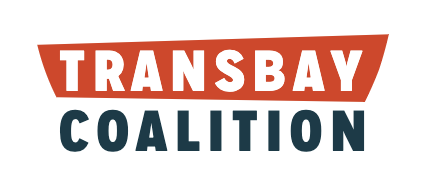Around the world rail services commonly use the same train tracks to serve both regional and local trips. Using the same tracks for more kinds of trips helps to generate high ridership, social and economic benefits, reduce car dependency and increasing access to jobs, housing and educational institutions for residents and travelers alike.
For the past 50 to 60 years, however, the US has maintained a “commuter rail” model that focused on serving white collar commuters at peak commute times, while the rest of the world migrated to a rail system that operated all day and all week long, serving more kinds of travelers making more kinds of trips.
The U.S.’s specialized “commuter rail” model was enshrined in the country’s federal funding policy and regulations, which assumed a fundamental difference between commuter rail and transit rail. The Federal Railroad Administration (FRA) has been in charge of federal commuter rail policy, while the Federal Transit Administration (FTA) regulates and funds transit.
The separated funding categories pose a problem for major rail programs, like those on the Caltrain corridor and network, that are seeking to modernize rail systems along the lines of the international regional rail model.
Currently, most funding from the FTA and FRA can only be spent on either transit or commuter rail, respectively. Instead of rewarding projects that use the same infrastructure efficiently for multiple kinds of trips, and project scoring penalizes such projects. A project that supports both transit and intercity/commuter rail must exclude the costs and benefits of one or the other in order to qualify for either FTA or FRA funding. Although some federal funding programs exist that support multipurpose projects, these are limited in size and do not include multi-year funding agreements.
For the proposed New Transbay Rail Crossing (also known as Link21), these bifurcated funding programs are a particular problem. Link21 aims to connect the transit and commuter rail systems across the Bay, including BART, Capitol Corridor, and possibly Caltrain and California High-Speed Rail. Similarly, it is also a huge problem for the Northeast, the Cascadia Corridor (Pacific Northwest), LOSSAN and LinkUS (Southern California), South Florida and Orlando Tampa corridors, and elsewhere.
To fix this , the Bay Area is joining with transportation and regional planning agencies throughout the US to support Congress in creating a new, well-funded program, administered jointly by FRA and FTA, for multi-use rail projects that support the integration and interoperability of transit and intercity passenger rail.
Now in Congress
This week, the U.S. House of Representatives is considering H.R. 3684, the INVEST in America Act, a five-year, $547 billion surface transportation bill.
The INVEST in America Act provides $109 billion for public transit, $95 billion for passenger/freight rail, and creates a new Passenger Rail Improvement, Modernization, and Expansion (PRIME) competitive grant program to improve mobility, operational performance, or growth of high-speed or intercity passenger rail corridors.
The bill authorizes $25 billion for PRIME with priority given to projects that incorporate regional planning, provide environmental benefits, and/or improve service in and to socially disadvantaged communities.
PRIME is a significant step towards providing funding for programs such as Link21 and others across the country that support the integration and interoperability of transit and passenger rail.
Call your member of Congress today!
The INVEST in America Act will be voted on by the full House this week. If you have a moment, please contact your Representative:
urge them to support H.R. 3684 and the proposed $109 billion for public transit and $95 billion for passenger/freight rail. urge them to support the $25 billion PRIME grant program to help address the historical funding challenges faced by megaregional, multi-modal rail programs and move the US toward a more connected, convenient, and equitable rail network. urge them to speak up for transit operating funding, so there is money to provide frequent service for the trains and busesurge them to also co-sponsor HR 3744 (Johnson), providing robust funding for transit service
You can call 202.224.3121 and give them your zip code – the operator will connect you.
If they confirm their support for the PRIME program and/or HR3744, please let us know at friends@friendsofcaltrain.com
